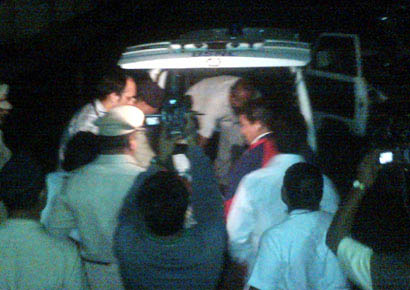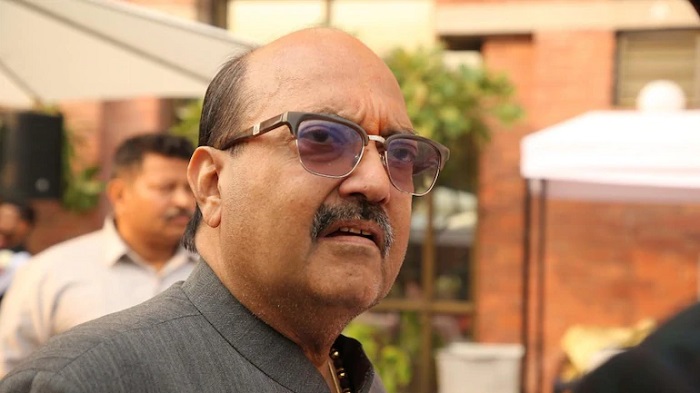
New Delhi, August 2: The investigation into the four low-intensity explosions that rocked Pune's busy Junglee Maharaj Road began on Thursday. Investigators are trying to find out the source of the explosives used in the attack.
Sources say the material used suggests that it was a well-planned attack. Sources add the operation doesn't appear to be the work of a sleeper cell but of a terror group. Forensic experts who visited the four sites are closely examining the detonators and ball bearings used in the bombs. The fifth bomb that was defused is also being examined for leads.
Police sources say that the constituents of the diffused bomb are - ball bearings, an odourless powder, a sticky substance which makes it look like a pastry, detonators and circuit. The cycles used are seemed to be newly bought for the attack. Owner of the cycles is being traced through the chasis number. Questioning of some of the cycle vendors in the area is being done.
Interrogation of Dayanand Patil who was injured and was carrying one of the devices is still on.
Meanwhile, the ATS and the NIA, are examining CCTV footage from at least 3 sites to gather more clues. Investigating agencies are also trying to trace the owner of the bicycles found at site. Some cycle vendors are being questioned.
Union Home Secretary RK Singh said, “Investigations are on. NIA, NSG blast investigation teams are all the spot. The two IEDs that have not exploded are being investigated. If planning has happened, then there is involvement of some group and this is being investigated.”
Four coordinated low-intensity explosions struck the busy arterial JM road in the heart of Pune on Wednesday night. The explosions occurred at Jangli Maharaj (JM) road at spots near Balgandharva Theatre, Dena Bank branch, a McDonald food outlet and Garware Bridge.
Maharashtra Home Minister RR Patil on Thursday said investigating agencies were probing all angles to determine whether any terror outfit was behind the low intensity serial bomb blasts. "Whether it was a terrorist act or not will be determined only after proper investigations are carried out by Maharashtra ATS, city crime branch and central agencies," Patil told reporters after visiting the four blast sites on J M Road here.
Asked whether there could be a "saffron terror" angle to the incident, he said, "All angles are being probed and it will not be proper to comment at this stage."
He said the person injured in one of the blasts—near Bal Gandharva theatre -- was being treated for minor injuries.
The injured person-- Dayanand Patil, who hails from a nearby village of Uruli Kanchan, had reportedly visited the spot opposite the Balgandharva Theatre, where a 'dharna' agitation by India Against Corruption (IAC) was in progress.
After he left the place, the explosive, which had apparently been put in his carry bag, exploded on the way, police sources said.
Unconfirmed reports said ammonium nitrate could have been the substance used in the blast triggered by small detonators and pencil cells.
Police have also issued an advisory to IAC activists to wind up the dharna pandal for security reasons. Life in the city returned to normal late night as the blasts did not cause any large scale damage. Police have appealed to people to ignore rumours and carry on daily routine without fear.







Comments
Add new comment